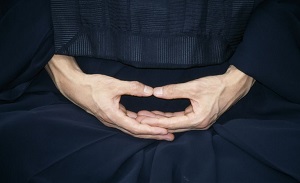The 5 Muslim Daily Prayer Times and What They Mean
 For Muslims, the five daily prayer times (called salat) are among the most important obligations of the Islamic faith. Prayers remind the faithful of God and the many opportunities to seek His guidance and forgiveness. They also serve as a reminder of the connection that Muslims the world over share through their faith and shared rituals.
For Muslims, the five daily prayer times (called salat) are among the most important obligations of the Islamic faith. Prayers remind the faithful of God and the many opportunities to seek His guidance and forgiveness. They also serve as a reminder of the connection that Muslims the world over share through their faith and shared rituals.
The 5 Pillars of Faith
Prayer is one of Islam's Five Pillars, the guiding tenets that all observant Muslims must follow:
- Hajj: Pilgrimage to Mecca, Islam's most holy site, that all Muslims must make at least once in their lifetime.
- Sawm: Ritual fasting observed during Ramadan.
- Shahadah: Reciting the Islamic profession of faith, called the Kalimah ("There is no God but Allah, and Muhammad is his messenger").
- Salat: Daily prayers, properly observed.
- Zakat: Giving to charity and aiding the poor.
Muslims demonstrate their faithfulness by actively honoring the Five Pillars of Islam in their everyday lives. Daily prayer is the most visible means of doing so.
How Do Muslims Pray?
As with other faiths, Muslims must observe specific rituals as part of their daily prayers. Before praying, Muslims must be clear of mind and of body. Islamic teaching requires Muslims to engage in ritualistic washing (wudu) of the hands, feet, arms, and legs, called Wudhu, before praying. Worshippers must also be dressed modestly in clean clothing.
Once the Wudhu has been completed, it's time to find a place to pray. Many Muslims pray at mosques, where they can share their faith with others. But any quiet place, even a corner of an office or home, can be used for prayer. The only stipulation is that the prayers must be said while facing in the direction of Mecca, the birthplace of the Prophet Muhammad.
The Prayer Ritual
Traditionally, prayers are said while standing on a small prayer rug, though using one isn't required. The prayers are always recited in Arabic while performing a series of ritualized gestures and movements intended to glorify Allah and proclaim devotion called Rak'ha. The Rak'ha is repeated two to four times, depending on the time of day.
- Takbir: Worshippers stand and raise their open hands to shoulder level, proclaiming Allahu Akbar ("God is great").
- Qiyaam: Still standing, faithful cross their right arm over their left across their chest or navel. The first chapter of the Quran is read, along with other supplications.
- Ruku: Worshippers bow toward Mecca, place their hands on their knees, and repeat, "Glory be to God, the greatest," three times.
- Second Qiyaam: The faithful return to a standing position, arms at their sides. Allah's glory is proclaimed again.
- Sujud: Worshippers kneel with only palms, knees, toes, forehead, and nose touching the ground. "Glory be to God, the highest" is repeated three times.
- Tashahhud: Transition into a seated pose, feet beneath them and hands on laps. This is a moment to pause and reflect on one's prayer.
- Sujud is repeated.
- Tashahhud is repeated. Prayers to Allah are said, and the faithful raise their right index fingers briefly to proclaim their devotion. Worshippers also ask Allah for forgiveness and mercy.
If worshippers are praying communally, they will conclude prayers with a brief message of peace for one another. Muslims turn first to their right, then to their left, and offer the greeting, "Peace be upon you, and the mercy and blessings of Allah."
Prayer Times
In Muslim communities, people are reminded of the salat by the daily calls to prayer, known as adhan. The adhan are delivered from mosques by a muezzin, the mosque's designated caller of prayer. During the call to prayer, the muezzin recites the Takbir and the Kalimah.
Traditionally, the calls were made from the mosque's minaret without amplification, though many modern mosques use loudspeakers so that the faithful can hear the call more clearly. The prayer times themselves are dictated by the position of the sun:
Dan Kitwood / Getty Images
- Fajr: This prayer starts off the day with the remembrance of God; it is performed before sunrise.
- Dhuhr: After the day's work has begun, one breaks shortly after noon to again remember God and seek His guidance.
- 'Asr: In the late afternoon, people take a few minutes to remember God and the greater meaning of their lives.
- Maghrib: Just after the sun goes down, Muslims remember God again as the day begins to come to a close.
- 'Isha: Before retiring for the night, Muslims again take the time to remember God's presence, guidance, mercy, and forgiveness.
In ancient times, one merely looked at the sun to determine the various times of day for prayer. In modern days, printed daily prayer schedules precisely pinpoint the beginning of each prayer time. And yes, there are plenty of apps for that.
Missing prayers is considered a serious lapse of faith for devout Muslims. But circumstances do sometimes arise where a prayer time may be missed. Tradition dictates that Muslims should make up their missed prayer as soon as possible or at the very least recite the missed prayer as part of the next regular salat.
By Huda
Source: learnreligions.com/
